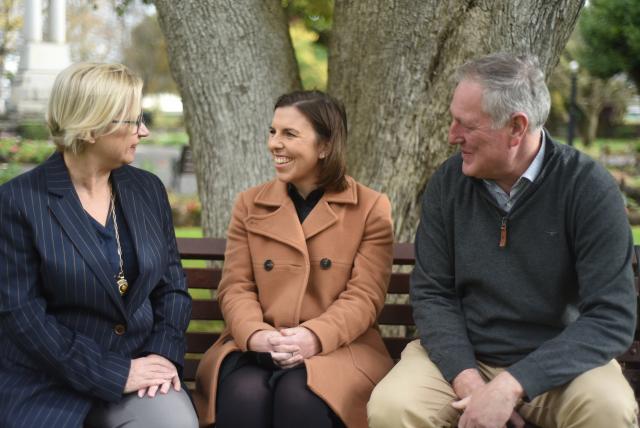
Charlotte Varcoe
INTERSTATE tourism opportunities will be one of the many items on the to-do list for South Australia’s first cross-border commissioner Liz McKinnon.
Ms McKinnon was announced as the State’s first cross-border commissioner in December last year and started the role in April.
Since beginning her new role, Ms McKinnon has reportedly travelled to a vast number of cross-border communities and has been a part of more than 70 meetings, making her halfway through her 100-day plan.
She has since identified a number of consistent issues from her meetings, including forestry, fire management, tradespeople’s accreditation interstate and access to training and education.
Biosecurity and access to medical services were also identified.
Ms McKinnon said following the recent Gather Round event held in Adelaide, she would love to have visitors from interstate take the “long way there and the long way back” following from Member for Mount Gambier Troy Bell’s call to arms in Parliament last week.
Mr Bell said there was no doubt a large number of interstate travellers came through the region during the mammoth event and he highlighted the tourism opportunities it would present in the future.
“We want to be looking at how we can encourage people to come through Mount Gambier,” Mr Bell said.
“We want to encourage them to either take the short way there and the long way back or the long way there and the short way back but to do that we have got to have products here and a reason for them to want to come through.”
He said the opportunities for more tourism in the region were already there with key stakeholders needing to make sure they “grab them [the opportunities] with both hands and make sure we start growing our communities”.
Mr Bell said he was pleased the State Government took on the cross-border commissioner initiative stating it “shows real leadership from a government which is investing in regional areas”.
“We have a minister who comes from a region that sits on a border and I think we are getting the foundations in place to see our community really start to grow over the next four to five years,” he said.
“It is an exciting time as we are seeing more money and attention being invested into this electorate than we have ever seen before.”
Ms McKinnon said the cross-border communities she had engaged with wanted to work together and have the Government recognise their challenges which impact their growth.
“I am hearing that councils really need to collaborate on cross-border tourism and we are in a very unique position with two world heritage sites within 150km of each other,” she said.
“The councils are very keen to explore how we strengthen that Adelaide to Melbourne touring route and make sure this is a stop over point.
“I think these cross border communities want to be recognised as distinct economic zones which they can collaborate on these key issues, whether it is getting more value for agriculture, attracting more manufacturing, building a greater tourism economy and now we have a distinct voice to push these issues up to Government and make sure it is considered in policy decisions and future budgets.”
Minister for Regional Development Clare Scriven congratulated Ms McKinnon on her work thus far, stating she was working very hard in terms of promoting the interests of regional residents and businesses.
“From the Government’s point of view, we are keen to outline what the priorities are, which is about increasing access to education and training, streamlining the sort of local policies that can be changed and also the administrative arrangements which might be causing problems for both the residents and for businesses,” Ms Scriven said.
“It is also about showing the sorts of things we can do to maximise the outcome for resources across borders, with one example being the deer culling on the outside of the border and whether we could be working more closely with the Victorian Government to be able to maximise that type of program.”
Ms Scriven said it was also about maximising the resources in the cross-border zones and ensuring the State Government was not working in isolation.
“We are able to make sure we are not working in isolation and we are not duplicating to the extent possible while maximising that shared opportunity,” she said.
